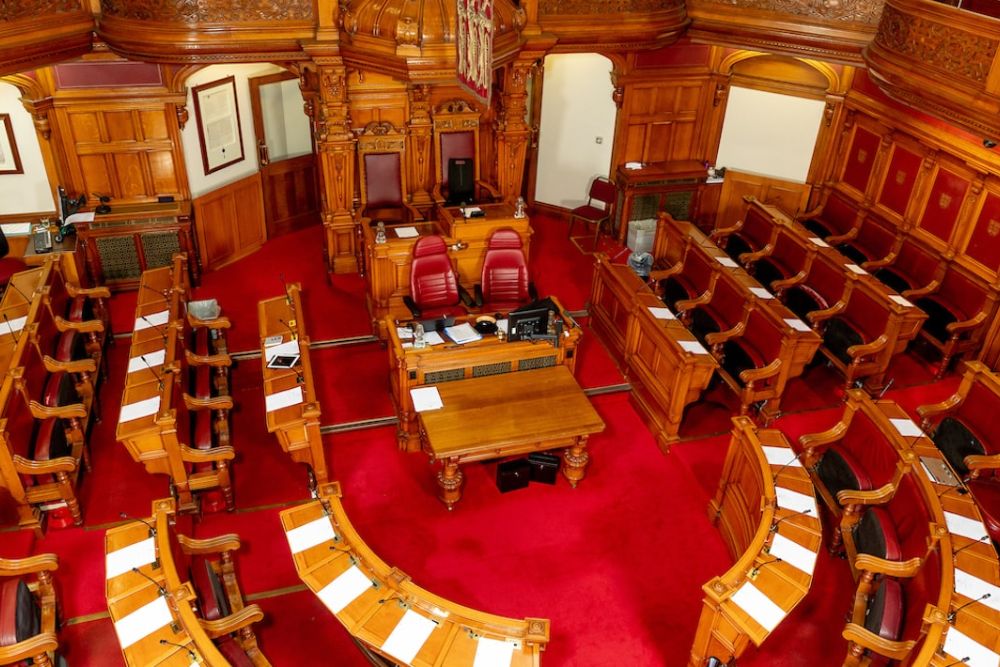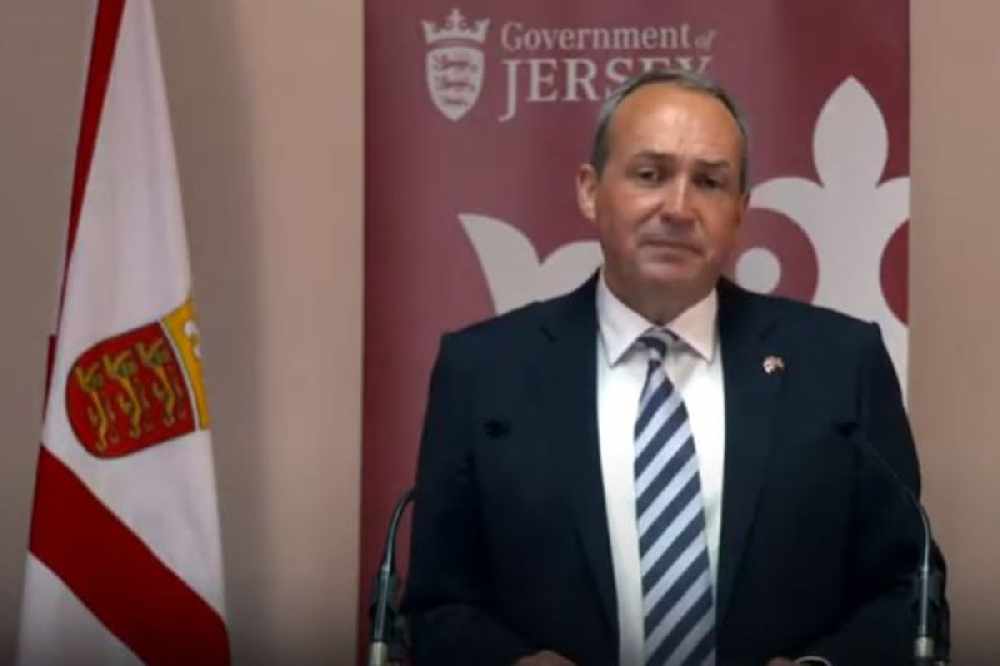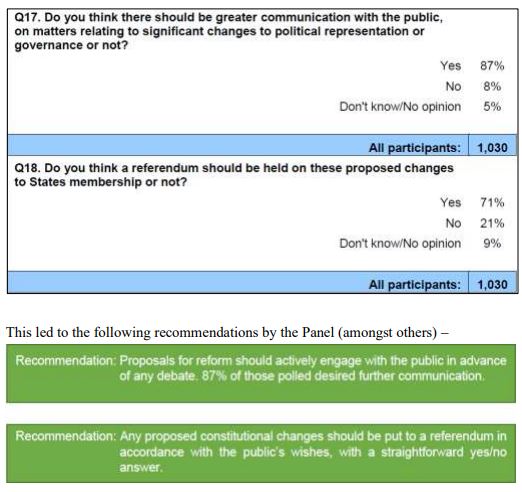
The next attempt to overhaul Jersey's electoral system will need at least 32 votes to pass - if Senator Lyndon Farnham gets his way.
The last vote on reforming the system, which would have removed the Constables' right to vote, was lost by 26 votes to 20.
Senator Lyndon Farnham asked the States Assembly before the last try to agree to a super-majority, but that was narrowly defeated.
He's now making another attempt next month, ahead of the debate on 1 December.
"Having endured a number of debates on such matters in the recent past, one thing that needs to be made very clear is that these are matters of substance and great importance for current and future generations. The decisions we make now will direct how Islanders are represented and governed long after current members have moved on.
"Given the importance, and the potential consequences, of such decisions I believe that a far more considered and consensual approach, than that of which has been adopted in recent years, is essential to ensure that we introduce change that is in the very best long-term interests of our Island."
Senator Farnham has pointed out in his proposition that several other jurisdictions have supermajorities build into their systems for approval - such as Belgium, Germany, and Poland.
He says it wouldn't be satisfactory for a proposition, lodged with just four weeks notice, by possibly a single vote.
"In my view, that would deepen the low regard in which this Assembly is held, and at this time of significant external threats and uncertainty, we would be accused of navel-gazing, self-interest, and not treating such matters with the importance they should require.
"Whilst my personal preference is for Referenda on such matters, it is also clear that there are other ways of ensuring that that matters of such importance as Constitutional change are treated with the importance they deserve.

"To leave such an important change to be approved by potentially just one vote (i.e. 25 to 24) which directly impacts upon the fundamentals of how Islanders are represented, how their interests are protected, or how they can vote, would completely belittle the importance of the subject, and once again impact upon the standing of this Assembly."
The topic was discussed in last week's States sitting, just before the new PPC proposals were lodged, with Senator Farnham asking PPC Chair Deputy Russell Labey if one of the reasons the States has failed to agree to electoral reform was because of a lack of communication and members being 'too apart' on ideas for how to do it.
A 2017 survey on electoral reform on behalf of the Corporate Services Scrutiny Panel, completed by 1,030 people, revealed that 87% wanted better communication on significant changes to political representation.

Deputy Labey says people's views can quickly change.
"I did undertake a lot of consultation throughout 2018 and 2019. When it comes close to the debate and on the day of the debate, what members might have said they are inclined to go for and perhaps would take a punt on and this time would do it - that I've noticed in my experience changes drastically.
"That's the nature of debates and the game we're in. It's not a criticism of members, I'm just saying it is very difficult to build propositions on foundations of what members commit to at that time.
"As the Constable of St Clement said to me, the only thing I can take as gospel from members is when they say, we are definitely not voting for this proposition. That's the only thing you can rely on, in my experience."
Senator Farnham's proposal to amend Standing Orders is scheduled for debate on 17 November.


 Civil Service recruitment freeze extended
Civil Service recruitment freeze extended
 Industry rumours of Bergerac second series
Industry rumours of Bergerac second series
 DFDS brings in replacement ship for Portsmouth sailings
DFDS brings in replacement ship for Portsmouth sailings
 100 days until Orkney Island Games begin
100 days until Orkney Island Games begin
 £200k padel facility coming to Les Ormes in May
£200k padel facility coming to Les Ormes in May
 Jersey Opera House opening show announced
Jersey Opera House opening show announced
 Two islanders trapped in a lift rescued from sixth-floor fire on the Esplanade
Two islanders trapped in a lift rescued from sixth-floor fire on the Esplanade
 Rooftop bar, climbing wall and concert hall in £110m Fort Regent plans
Rooftop bar, climbing wall and concert hall in £110m Fort Regent plans

